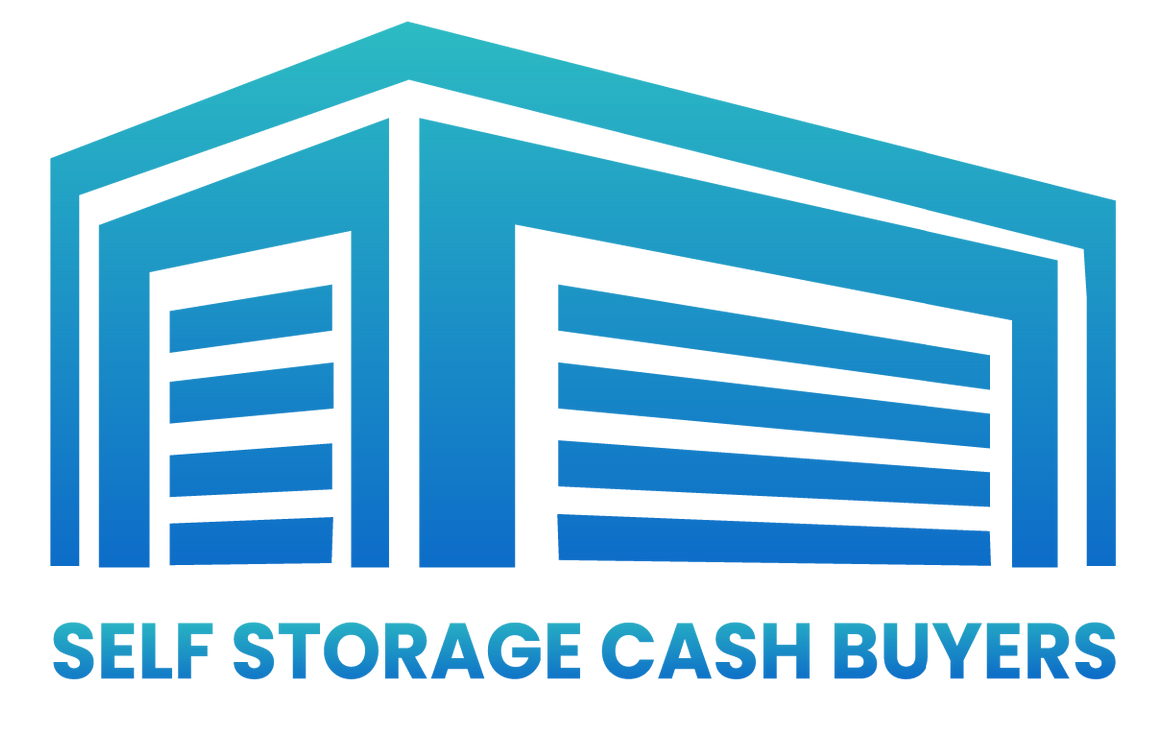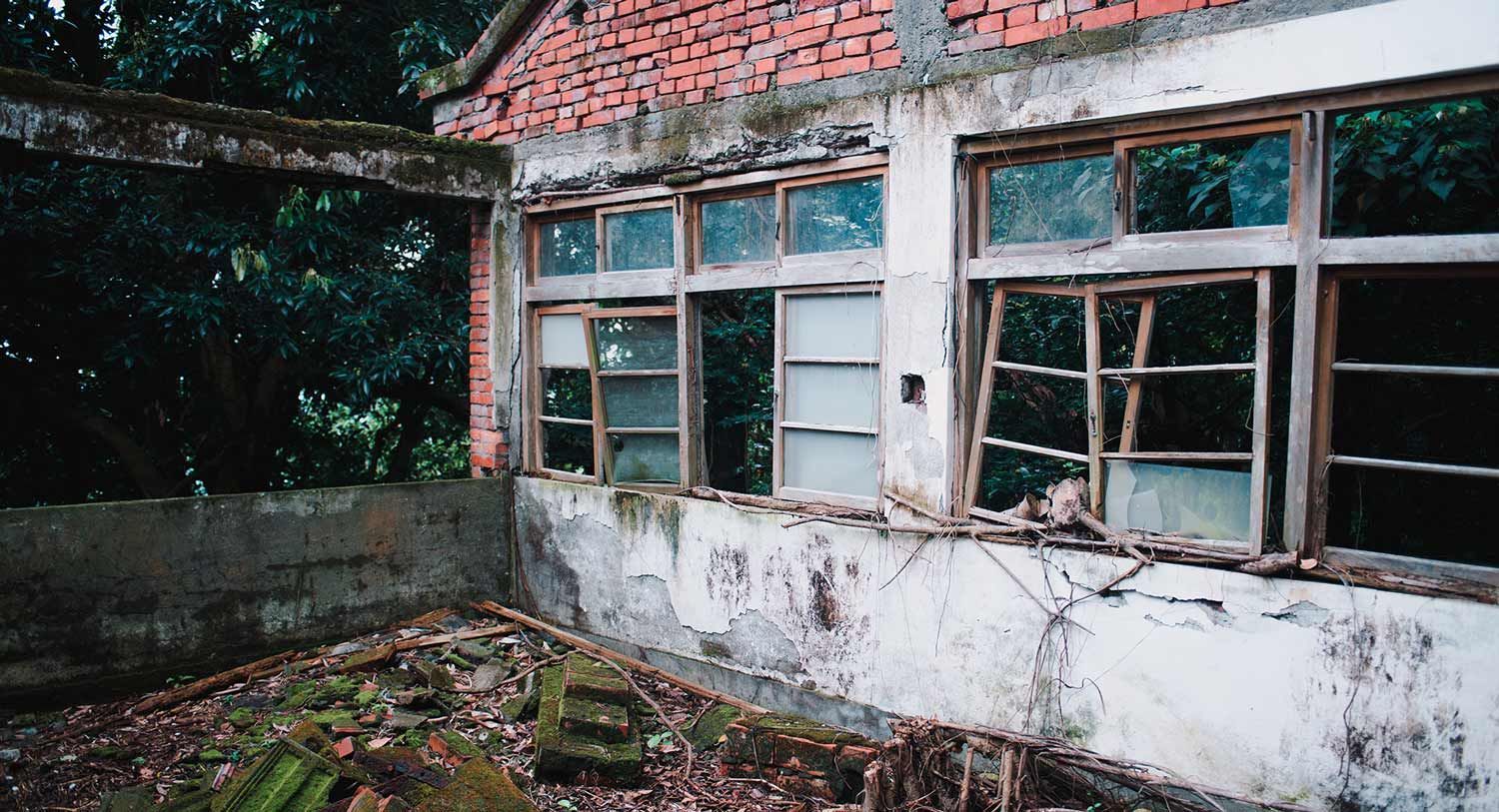Storage Unit Costs Fully Explained
Published on December 14, 2023
Nick Stevens
AUTHOR
Free Offer Form
In today's fast-paced and increasingly mobile world, the demand for storage solutions has never been greater.
Whether you're downsizing, relocating, or simply decluttering your living space, storage units offer convenience and security.
This guide explains storage unit costs, options, and how to maximize their value. Learn about storage container pricing to help you find the ideal storage solution that fits your belongings and budget.
Understanding Storage Unit Prices
A storage unit is a space for storing items, ranging from 4'x5' lockers to 300-square foot units that can fit a household's worth of belongings.
Learn about storage container pricing factors to make informed decisions when choosing a storage solution.
Factors Affecting Storage Unit Prices
Storage unit rent costs vary based on several factors, like the facility's security. Facility owners typically understand the importance of secure storage facilities, so they prioritize them.
Let's examine other factors that affect storage container expenses.
- Location: The facility's location significantly influences storage container expenses. For example, urban areas are typically more expensive due to accessibility and local economic conditions.
- Unit Size: Most storage units come in various sizes, impacting cost, so accurately assessing your storage needs is crucial to avoid higher storage unit costs.
- Type of Unit: Climate-controlled storage units offer added amenities for protection and convenience. However, they're typically more expensive due to their humidity control.
- Duration of Rent: Storage companies may offer discounts for clients who rent a storage unit or portable storage for an extended period.
- Accessibility: Drive-up storage units deliver convenient parking directly in front of the storage container but may be costlier than those farther from parking areas.
Average Storage Unit Prices in the United States
Here are some approximate average costs in the United States based on their size.
- Small Storage Units (5x5 or 5x10 feet)
- Monthly Average: $40-$80
- Annual Average: $480-$960
- Medium Storage Units (10x10 or 10x15 feet)
- Monthly Average: $75-$150
- Annual Average: $900-$1,800
- Large Storage Units (10x20 or 10x30 feet)
- Monthly Average: $125-$250
- Annual Average: $1,500-$3,000
- Climate-Controlled Units: These units offer climate control options like a controlled temperature and humidity level and are generally 20-50% more expensive than their simpler counterparts.
- Vehicle Storage: If you need to store a vehicle like a car, recreational vehicle, or boat, fees vary widely. Outdoor parking spaces are typically more affordable than enclosed storage units or portable containers. Remember to contact moving services before looking at these units.
How to Find Storage Unit Prices Online
Here's how to find storage costs online.
- Use Search Engines: Utilize search engines like Google, Bing, or Yahoo to search for relevant keywords like "self-storage costs" or "storage unit rates," for example.
- Visit Storage Facility Websites: Utilize your preferred search engine to locate storage facilities near your new location and visit their websites to view their options and pricing details.
- Online Marketplaces: Online platforms can connect individuals with storage space providers, enabling location-specific searches and pricing information. For example, SpareFoot, Storage.com, and SelfStorage.com.
- Use Storage Aggregator Websites: Some websites aggregate storage costs from multiple sources, like StorageUnit.com and StorageFront.com. This allows users to easily find their desired storage unit size.
- Consider Unit Size: Choose a storage size that suits your needs and budget. This will also let you decide whether you need to hire a moving company to transport your belongings.
Storage Unit Prices by Location
This section compares storage costs in different regions, providing insights for individuals and businesses seeking cost-effective storage solutions.
Storage Unit Prices in Houston
Self-storage is essential for major life events. It's particularly useful for downsizing, household changes, and house projects.
10'x10' self-storage units cost $99/month. If you live in Houston, you can find a company like Extra Space Storage to ask about their rental fees.
Storage Unit Prices in New York
The average monthly costs of self-storage units in NYC vary between sizes and structures. The 5'x5' closet size costs $60, while a 5'x10' half-bathroom unit costs $200.
A 10'x10' self-storage unit costs $300, while a 10'x15' unit costs $480.
The 10'x30' storage costs $500, but it's useful for storing larger items like a television, antiques, couches, or bedroom sets. This unit type has more than enough space to store a vehicle.
Storage Unit Prices in Oklahoma City
Oklahoma City offers various self-storage options, with the average cost of a 10'x10' unit being $80/month.
Other types of self-storage include 5'x5', 5'x10', and 10'x20' storage units, with units without climate control typically costing less.
You can also contact companies like Extra Space Storage to inquire about their rental fees.
Storage Unit Prices in California City
When living in California City, renting a self-storage unit or portable storage can be useful for various purposes, like storing bulky items, seasonal decorations, or even your car.
The average cost for a 10'x10' self-storage unit in California City, CA, is $110 monthly. However, smaller units can cost less.
For example, the rental cost for self-storage units varies between $68 for smaller storage lockers to $283 for larger storage units.
Storage Unit Prices by Size
When choosing a self-storage unit or portable storage, it's important to consider the optimal size for your needs to ensure you're not paying for unnecessary storage space.
This section covers the current pricing across different unit sizes.
Storage Unit Prices for Small Units
Renting a small unit measuring 5'x5' feet or 5'x10' feet will cost a $75 monthly fee. Smaller units can hold a walk-in closet's worth of stored items.
The monthly fee typically nets you a secure facility with security measures like video surveillance and door alarms to keep your portable storage safe.
A standard storage facility typically offers various payment options for your convenience.
Storage Unit Prices for Medium Units
Medium-sized storage units cost $150. The storage units' dimensions are 5'×15', 10'×10', and 10'×15'.
These storage units are the most popular storage unit size and are perfect for households that need an average amount of storage space.
The 5'×'15 unit can store the contents of a small one-bedroom apartment, while the 10'×10' unit can store the contents of a larger bedroom.
The 10'×15' unit can store the contents of a two-bedroom house.
Storage Unit Prices for Large Units
Large storage units cost $300. These storage units come in three sizes - 10'x20', 10'x25', and 10'x30'.
The typical large storage unit has a square foot capacity of 200'-300', enough to store belongings from a house or large apartment.
The storage units are spacious enough to store belongings ranging from furniture to vehicles.
Storage Unit Prices by Type

This section covers the different rental fees among various types of storage units, providing essential insights for consumers and industry professionals.
Storage Unit Prices for Climate-Controlled Units
Climate control will run you a higher price for the extra features.
A climate-controlled storage unit costs $25-30 per month, depending on the type of item, like books, artwork, vinyl records, and wine and spirits.
Storage unit companies typically handle everything from pickup to delivery, for their climate-controlled units, but note that this will cost more.
NOTE: A climate-controlled unit is typically pricier than its simpler counterpart, but this is slowly changing. Nationally, street rates for units without climate control decreased by 3.8%.
Storage Unit Prices for Drive-Up Units
Storage unit rates change depending on the added features and size. For example, drive-up units are cheaper than units with climate control but costlier than indoor units.
Climate-controlled drive-up units or indoor drive-up units cost even more. Vehicle storage units have an average price of around $210/month, but expenses vary based on unit size and type.
Storage Unit Prices for Indoor Units
The indoor units start at $65 per month and are excellent for storing smaller items like boxes, furniture, and appliances.
Conversely, outdoor units are ideal for bigger items such as vehicles, boats, and RVs and cost up to $250 per month.
NOTE: Public Storage prioritizes flexibility, with seven unit sizes and three vehicle storage options, including one for boats and RVs. With many US locations and 24/7 access, Public Storage will keep your stored items safe.
Storage Unit Prices: Tips and Tricks
This segment will explore tricks to help you navigate storage unit pricing.
How to Get the Best Deal on Storage Unit Prices
Getting the best deal on storage costs involves careful research and strategic planning. Here's how to secure the best rates for your storage needs.
Compare Multiple Companies
Conduct thorough research and compare storage providers in your area, focusing on conveniently located options with the desired size and features using online platforms and directories.
Size Matters
Choose the right-sized unit or portable storage. You don't want to pay for unneeded space, so estimate your storage needs accurately.
Consider Location
In the moving industry, storage costs from most storage unit companies vary significantly based on area, with urban or densely populated areas being pricier. Consider a facility slightly farther from the city center.
Check for Promotions
Storage unit companies often offer promotions to attract new customers, like discounts, special offers, or first-month-free deals. Reading the fine print for terms and potential rate increases is crucial.
Negotiate
Negotiate with the facility manager from your preferred storage company if the price is slightly higher than desired, especially if they have vacant units. You may be able to get them to handle pickup and delivery.
Bundle Services
Some storage and real estate investing companies offer additional services like truck rentals or packing supplies. Bundling these services with your storage unit rental may result in cost savings.
How to Negotiate Storage Unit Prices
Negotiating storage costs can help you secure a better deal for your storage units. Here's how to effectively negotiate storage costs.
- Do Your Research: Begin by researching multiple storage providers in your area. Get quotes and pricing information from different companies to understand market rates.
- See the Facility in Person: Schedule a visit to the storage facility. While there, inspect the units and assess security measures.
- Ask About Available Discounts: Ask if the storage company has any ongoing promotions, discounts, or special offers the facility may have, such as first-month-free deals or long-term rental discounts.
- Highlight Your Long-Term Commitment: To secure a facility, consider committing to a longer rental term, as many companies offer reduced rates for customers who sign longer contracts.
- Leverage Competitive Quotes: Share your multiple storage facility quotes and pricing with your contact at your chosen company and encourage them to offer a competitive rate.
- Ask for a Rate Guarantee: Inquire about the possibility of a rate guarantee. This means the storage company will keep your rental rate stable for a specified period.
- Negotiate Fees and Terms: Discuss additional fees like administrative, insurance, delivery costs, and sales tax and inquire if they can be waived or reduced. This can reduce the effective cost of the unit.
- Consider Prepayment: Some structures may offer a discount if you pay for several months or even a year in advance. See if this option makes sense for your budget.
- Be Prepared to Walk Away: If research and negotiation efforts are unsuccessful, consider walking away and exploring alternative options, as this may prompt the company to offer a better deal.
- Get Everything in Writing: Once you've reached an agreement, get all the terms and conditions in writing. This includes the agreed-upon rental rate, discounts, and the contract duration.

How to Save Money on Storage Unit Prices
Prioritize being cost-effective with your storage needs cost-effectively. Here are some strategies and tips to help you reduce your storage costs.
Downsize and Declutter
Before leasing a storage unit, take the time to declutter and downsize your belongings. With less belongings to store, you can get by with a smaller unit, resulting in lower costs.
Choose the Right Size
Select a storage unit that perfectly fits your needs. Don't pay for extra storage you won't use. Many storage buildings offer a variety of unit sizes, so find one that matches your belongings.
Shop Around
Research multiple storage buildings in your area to compare costs. Don't settle for the first option; different companies may offer varying rates and specials.
Take Advantage of Promotions
Watch for promotions and discounts offered by storage facilities. These can include first-month free deals, referral bonuses, or discounts for military personnel and students.
Consider Off-Peak Seasons
Storage costs can be influenced by demand. Plan your storage needs during off-peak seasons, such as winter, when costs may be lower.
Negotiate the Rate
Don't hesitate to negotiate with your chosen storage companies. Mention competitive quotes you've received from other companies and see if they can match or beat those costs.
Bundle Services
Some storage facilities offer additional services like truck rentals or packing supplies. Bundling these services with your storage unit rental may result in cost savings.
Long-Term Rental Discounts
If you anticipate needing storage for an extended period, inquire about long-term rental discounts. Many facilities offer reduced rates for customers who commit to longer contracts.
Pay in Advance
Some facilities offer discounts if you pay for several months or even a year in advance. Calculate the savings to see if this option makes financial sense for you.
Consider Shared Storage
If you have a friend or family member with similar storage needs, consider sharing a unit. Splitting the storage unit cost of a larger unit can be more economical than renting separate ones.
Review Insurance Options
Carefully review the insurance options the storage facility provides. You may be able to save money by opting for a lower-cost insurance plan.
Regularly Reevaluate
Periodically assess your storage needs and whether you still require the storage unit. If you no longer need it, terminate the monthly rent to stop incurring unnecessary expenses.
Use Vertical Space
Maximize the space within your storage unit by using shelves, stacking boxes, and vertical storage space. This can help you rent a smaller unit.
Keep an Inventory
Maintain a detailed inventory of what's stored in your unit. This can help you avoid buying belongings you already have in storage and reduce the need for a larger unit.
Frequently Asked Questions
Read this section to learn more about storage unit pricing in the United States.
What Is the Average Cost of a Storage Unit?
The typical storage unit cost in the United States ranges from $40 to $200 per month and varies based on area, size, and amenities offered by the company.
How Much Does a Storage Unit Cost per Month?
The monthly storage unit cost can vary widely but typically ranges from $40 to $200 or more, depending on area, size, and facility features.
Portable storage containers can go from about $190-$300, with the additional benefit of storage wherever you need it.
Are There Any Hidden Costs Associated With Storage Unit Prices?
There can be hidden fees associated with storage prices, such as administrative fees, insurance, and late payment fees.
Reading the rental agreement carefully is important to understand all potential charges.
How Can I Find the Cheapest Storage Unit Prices Near Me?
To find the best value storage near you, consider using online storage unit rental platforms, comparing quotes from multiple facilities, looking for special promotions and discounts, and considering facilities slightly farther from high-demand areas.
Can I Negotiate Storage Unit Prices?
Yes, you can often negotiate storage prices.
It's worth discussing rates with representatives from various storage companies, especially if you have competitive quotes from other facilities or are willing to commit to a longer rental term.
Conclusion
The costs of renting a storage unit can vary significantly based on site location, unit size, and facility amenities.
By grasping the dynamics of storage unit pricing, consumers and industry professionals can make the right decision.
In pursuing affordable and efficient storage solutions, we urge all individuals to use this guide to make informed choices and optimize their storage experiences.


